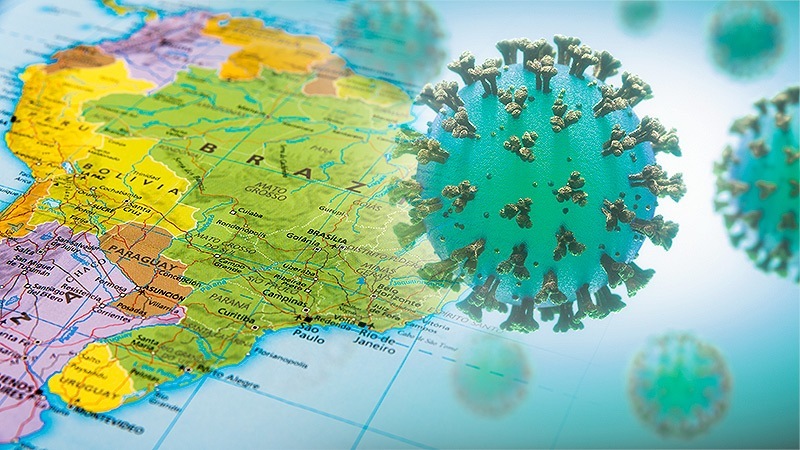RIO DE JANEIRO, BRAZIL – The coronavirus continues to control Latin America. The official numbers of Covid-19-infected people have risen the most in Brazil in recent days.

Every day, approximately 2,000 new confirmed cases are added to the total; yesterday there were 16,192 cases, 822 people have died to date.
Meanwhile, Ecuador is also reporting significantly increasing numbers. Yesterday, 4,450 people infected and 242 deaths were reported.
In Peru 4,342 people tested positive for Covid-19, and 121 died from the disease. An overview of several countries and developments in the course of this week:
Venezuela has been provided with over 90 tons of humanitarian aid packages to fight Covid-19 by the Russian Federation, the Pan-American Health Organization and the United Nations Children’s Fund for its troubled health sector.
An aircraft delivered 28,000 kits with protective clothing for doctors and nurses. The UN announced that its shipment, funded by donations from the international community and the UN, contained oxygen concentrators, cots, and hygiene kits.
In Argentina, which is on the verge of default, a decree was issued by the government on Monday, according to which the repayment of debts and interest in US dollars will be suspended until the end of the year.
This is intended to keep the country financially prepared for a further deterioration of the situation. Argentina seems to be relatively less affected by Covid-19, but for years it has already been struggling with a severe economic and thus also social crisis.
The president of Mexico, Andrés Manuel López Obrador, is trying to prepare himself for the economic crisis triggered by the coronavirus pandemic in cooperation with major players on the capital market: In a meeting with the world’s leading asset manager, Blackrock, the President discussed the creation of a “Marshall Plan” for the most affected countries, according to information from Reuters.
This week the government also introduced a plan to support small and medium-sized Mexican companies.
Peru has further tightened its contact and curfew measures this week and on Wednesday extended them until April 26th.
Men and women there are no longer allowed to leave the home together. Men are allowed to leave home on Monday, Wednesday and Friday, women on Tuesday, Thursday and Saturday. On Sundays everyone must remain at home.
In the largest favela in Brazil, the “Rocinha” in Rio de Janeiro, reports of the first residents who tested positive for Covid-19 have now been received.
Although President Jair Bolsonaro is still extremely recalcitrant in his opposition to quarantining to stop the spread of the coronavirus, this week the measures were extended for another two weeks in the state of São Paulo. The governor, João Doria, is expecting over 100,000 deaths in his state over the next six months.
In Colombia, the curfew was extended this week until April 27th. The essential shopping may only be carried out on one day of the week, based on the last digit of the ID card number.
In addition, the government of President Iván Duque called on the International Monetary Fund (IMF) for a loan of US$11 billion to help offset the resulting economic damage.
According to the United Nations Economic Commission for Latin America and the Caribbean (ECLAC), the economic contraction in the region will be between 1.8 and four percent in 2020.
Next year, the economy might again grow by two percent. It is expected that during the current curfew and economic lockdown period, some 25 million people will fall below the poverty line and 35 million into extreme poverty.
The International Labor Organization (ILO) fears that 14 million people in Latin America will lose their jobs as a consequence of the crisis. The informal sector in particular has been severely affected. According to the ILO, over 50 percent of the population in the region work informally and thus have no permanent employment.

